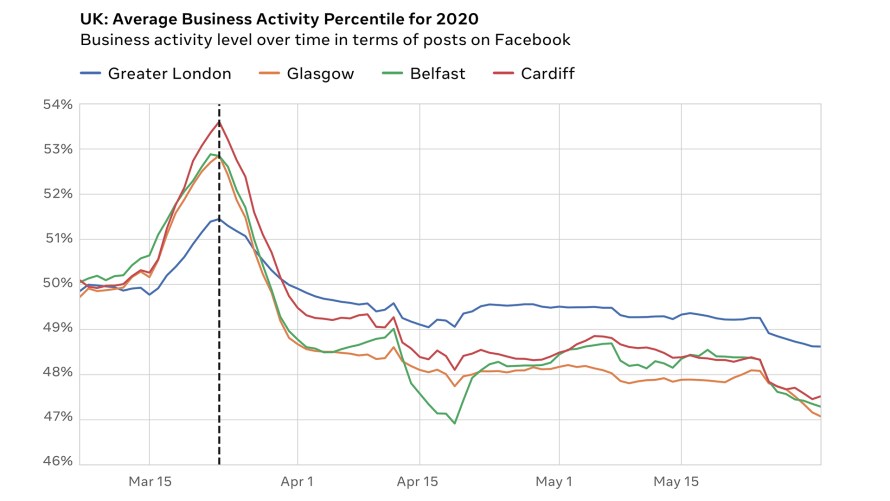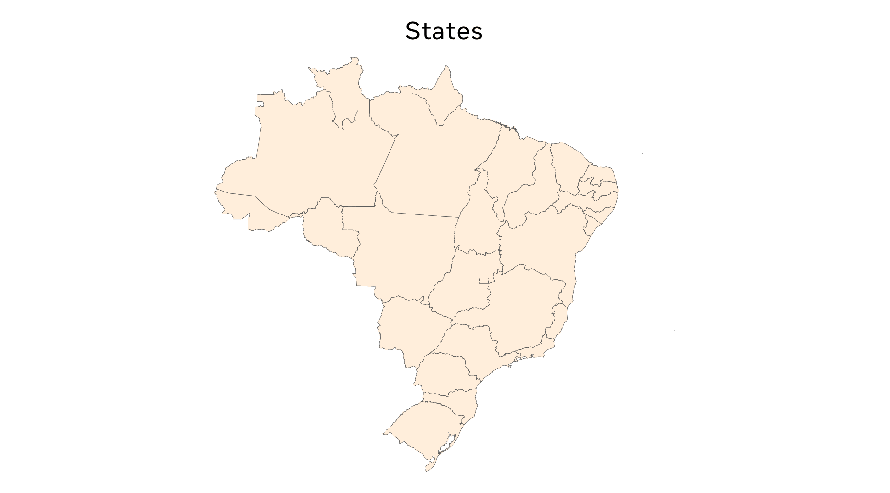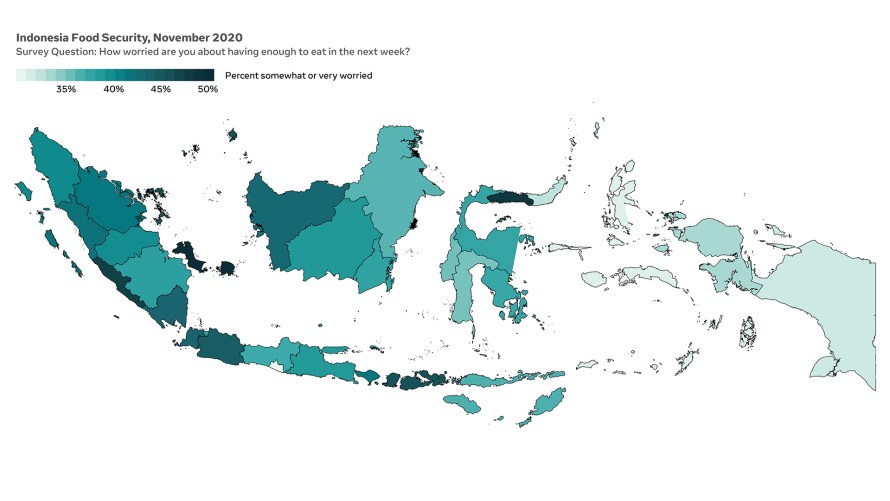Small businesses and people around the world are suffering devastating financial losses due to the ongoing COVID-19 pandemic, and public institutions need real time information to help. Today Facebook is launching new datasets and insights to help support economic recovery through our Data for Good program.
Researchers estimate that over the next five years, the global economy could suffer over $80 trillion in losses due to COVID-19. Small businesses in particular are being hit hard — our Global State of Small Business Report found that over one in four had closed their doors in 2020. Governments around the world are looking to effectively distribute financial aid as well as accurately forecast when and how economies will recover. These four datasets — Business Activity Trends, Commuting Zones, Economic Insights from the Symptom Survey and the latest Future of Business Survey results — will help researchers, nonprofits and local officials identify which areas and businesses may need the most support.
Business Activity Trends
Many factors influence the pandemic’s impact on local economies around the world. However, real time information on business activity is scarce, leaving institutions seeking to provide economic aid with limited information on how to distribute it. To address these information gaps, we partnered with the University of Bristol to aggregate information from Facebook Business Pages to estimate the change in activity among local businesses around the world and how they respond and recover from crises over time.

“Determining whether small and medium businesses are open is very important to assess the recovery after events like mandatory stay-at-home orders,” said Dr. Flavia De Luca, Senior Lecturer in Structural and Earthquake Engineering at the University of Bristol. “The traditional way of collecting this information, such as surveys and interviews, are usually costly, time consuming, and do not scale. By using real time information from Facebook, we hope to make it easier for public institutions to better respond to these events.”
Commuting Zones
Where people live only partially reveals where they spend their time — people often shop in neighboring cities or commute to work across state lines. These factors influence where people spend money, which in turn determines how economies rebound from crises. To better understand how economic areas differ from traditional administrative boundaries, we built international datasets based on Commuting Zones, which are areas where people spend most of their time. Universities and public institutions have built similar zones for the United States and our global version can help researchers better understand how geographic areas are likely to recover based on changing commuting and travel patterns.

Economic Insights from the Symptom Survey
Earlier this year, we launched a global COVID-19 Symptom Survey in over 200 countries to help public health officials better understand the rate at which people around the world are experiencing COVID-like symptoms and identify which regions should prepare their health systems for a surge. Given the global reach of this survey, it can also help officials understand the pandemic’s economic effects. As a result, the University of Maryland is now releasing new insights about whether people in different occupations are worried about their household finances and having enough food to eat, as well as if they have experienced disruptions in employment. In many countries around the world, we’ve seen people’s concerns about household finances increase alongside the rise in cases, suggesting that as the public health effects of the pandemic grow, the economic impact it has on families increases as well.

“As policymakers evaluate and respond to the rapidly changing health and economic situations in their regions, it is important to have timely information about how the situation of people regarding their economic security is changing,” said Dr. Frauke Kreuter, Director of University of Maryland’s Joint Program in Survey Methodology. “Having this dataset with daily information is an invaluable resource to see what has happened over the course of the pandemic.”
New Waves of the Future of Business Survey
Over the past six months, we have been working with the World Bank and Organisation for Economic Cooperation and Development to survey small businesses on Facebook monthly to determine the effects of the global pandemic on their operating status, their employees and their business needs. This week, we released new findings in the Global State of Small Business report, and we’re now making the country-level survey data from this report publicly available for anyone to use.
These new tools build on the existing range of data products that our Data for Good program offers public health officials to help combat COVID-19 around the world. We hope that researchers and nonprofits can leverage these new insights to help small businesses and communities recover more quickly from the economic effects of the pandemic.
Anyone can access aggregated data from the Symptom Survey by visiting University of Maryland’s API and from the Future of Business by visiting Facebook’s page on Humanitarian Data Exchange. Nonprofits or academics interested in accessing Business Activity Trends or Commuting Zones can email diseaseprevmaps@fb.com and futureofbusiness@fb.com for microdata from the Future of Business.



